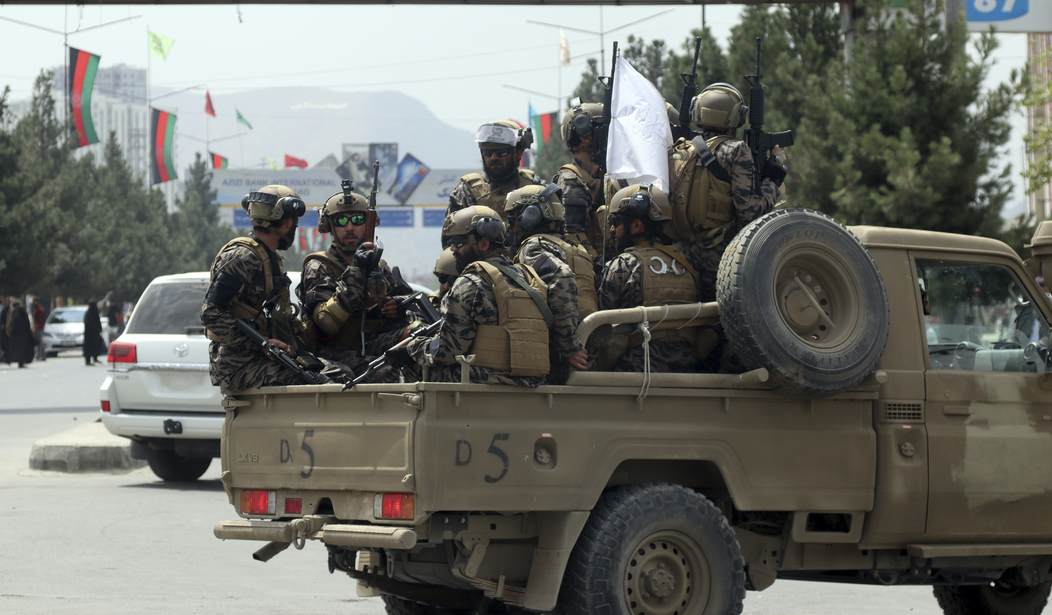The Special Inspector General for Afghanistan Reconstruction (SIGAR) released its updated 2023 "High-Risk List" on Wednesday, and it shows the reality in Afghanistan is anything but the rose-colored outlook presented earlier this month in the Biden administration's latest attempt to scapegoat the Trump administration for its own failures.
Within the 52-page SIGAR report are a number of damning indictments of the Biden administration's mistakes and missteps that have led to new and worsening problems since Biden's withdrawal concluded in August 2021. Here are five that reveal the reality in Afghanistan continues to worsen, contrary to Biden's declarations of success.
The Taliban continues to profit off of international aid — including from the United States — despite Biden administration claims to the contrary:
An NGO official in Afghanistan told SIGAR the Taliban do not need to “shake down” NGOs directly to benefit from international funds entering the country for humanitarian and development efforts: they impose customs charges on shipments coming into the country, charge taxes and fees directly on NGOs—as had the Ghani administration—and impose additional fees on vendors like commercial landlords, suppliers, and cell-phone companies that can pass the costs along to the NGOs. State noted reports of the Taliban charging NGOs fees for use of private cars, motorcycles, bicycles, and livestock, with the fee structure reportedly arbitrary and selectively enforced nationwide.
The Biden administration's "bureaucratic dysfunction" failed to protect vulnerable Afghans:
Between 2001 and 2021, tens of thousands of Afghans in and out of government risked their and their families’ lives by partnering with U.S. officials to secure the country, establish rule of law, and build democratic institutions. Once the United States withdrew and the Taliban seized power, the dangers to these Afghans soared. However, bureaucratic dysfunction and understaffing have undermined U.S. promises that they would be protected in a timely manner.
Recommended
Biden continues to break his promise of resettlement to America's Afghan allies:
One month before the Afghan government collapsed, President Biden assured U.S. allies that they would not be left behind: “There is a home for you in the United States if you so choose, and we will stand with you, just as you stood with us.” Once the United States withdrew and the Taliban seized power, the risks to Afghans who worked for, or in concert with, the U.S. government soared. However, the United States has left most of its allies behind, and it will take a year, on average, until each family reaches safety.
Taliban control and power continues to increase in Afghanistan:
USAID reported that Taliban officials have increased their unannounced visits to implementing partner offices, requests for information about NGO operations, requests for signed MOUs, and demands to be more involved in project decision making and implementation. Aid groups have been particularly concerned about Taliban pressure on relief workers to disclose personal biographic details. UN reporting shows that Taliban interference into staff recruitment is widespread across the country, with NGOs similarly reporting that they received directives to consult local Taliban officials when hiring staff and planning activities. An NGO in Faryab Province also reported that Taliban members have confiscated food assistance distributed to households. According to experts, the Taliban’s ministry of public health, among other offices, routinely disqualified “certain NGOs in favor of other preferred ones” and redirected donor assistance away from certain groups... by diverting aid to their supporters, the Taliban may further entrench their rule and legitimacy, while limiting aid to vulnerable populations.
The Biden administration doesn't know what's going on in Afghanistan and has few, if any, options to improve oversight:
Reports over the last 14 years have found weaknesses in oversight that have cost the United States billions in waste, fraud, and abuse. Since the withdrawal of U.S. troops and the closure of U.S. Embassy-Kabul in August 2021, the need for proper oversight has only grown as billions in U.S. assistance continues to flow to Afghanistan to address the ongoing humanitarian and economic emergencies. With the removal of U.S. personnel on the ground came the inability to directly observe the execution of U.S. assistance programs, raising significant oversight challenges and greatly increasing the risk that aid to Afghanistan will be diverted before it reaches those most in need.
The latest SIGAR report concludes that, due to the reasons enumerated, "U.S. assistance is at even higher risk now than it was in 2021" and the Taliban continues to wield its influence to benefit from American aid, with little oversight, while amassing more power and returning to its backward ways. The Biden administration continues to say Afghanistan is a success story of the president's leadership, but the reality revealed by SIGAR again debunks the White House's narrative.

























Join the conversation as a VIP Member